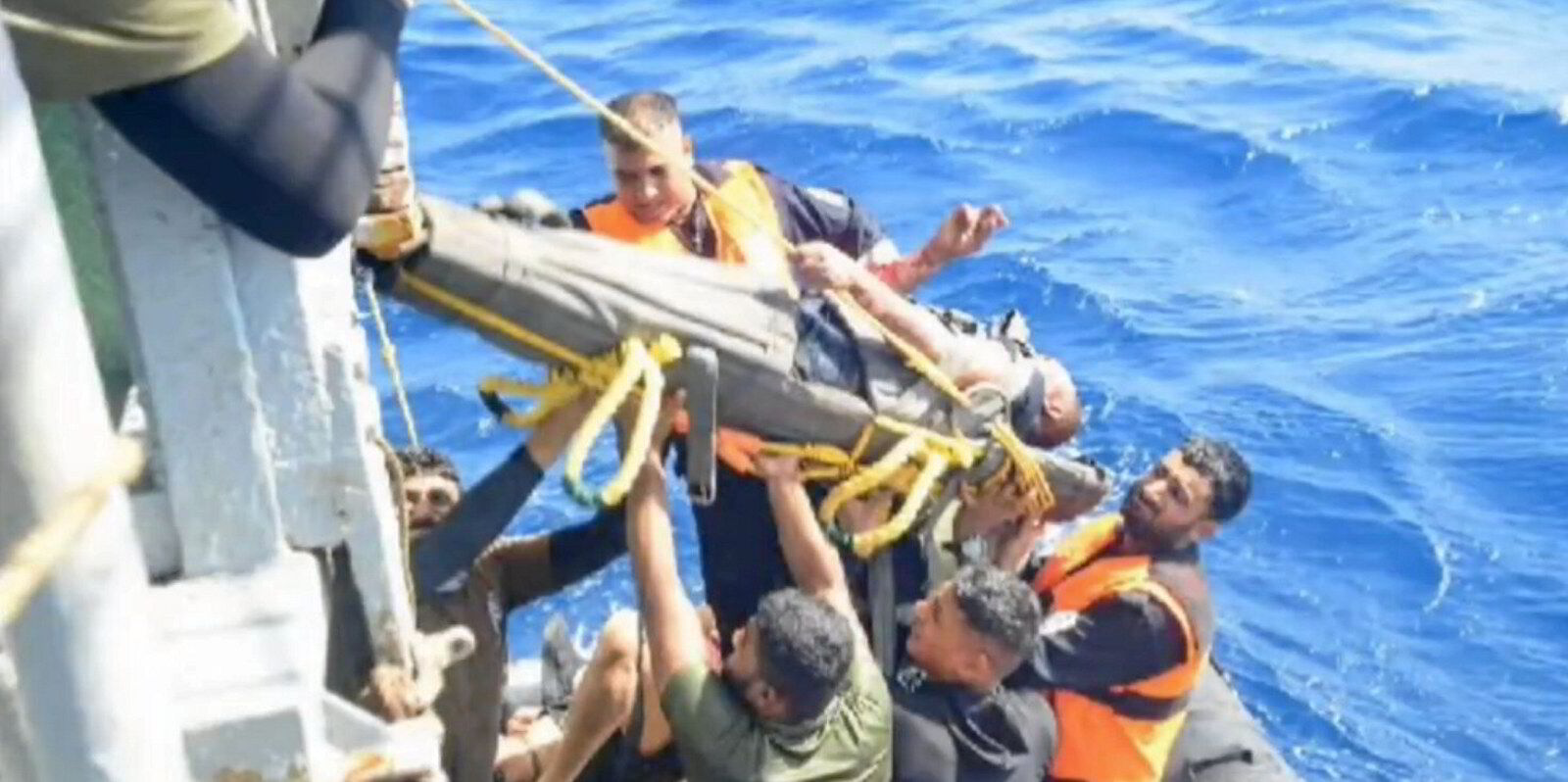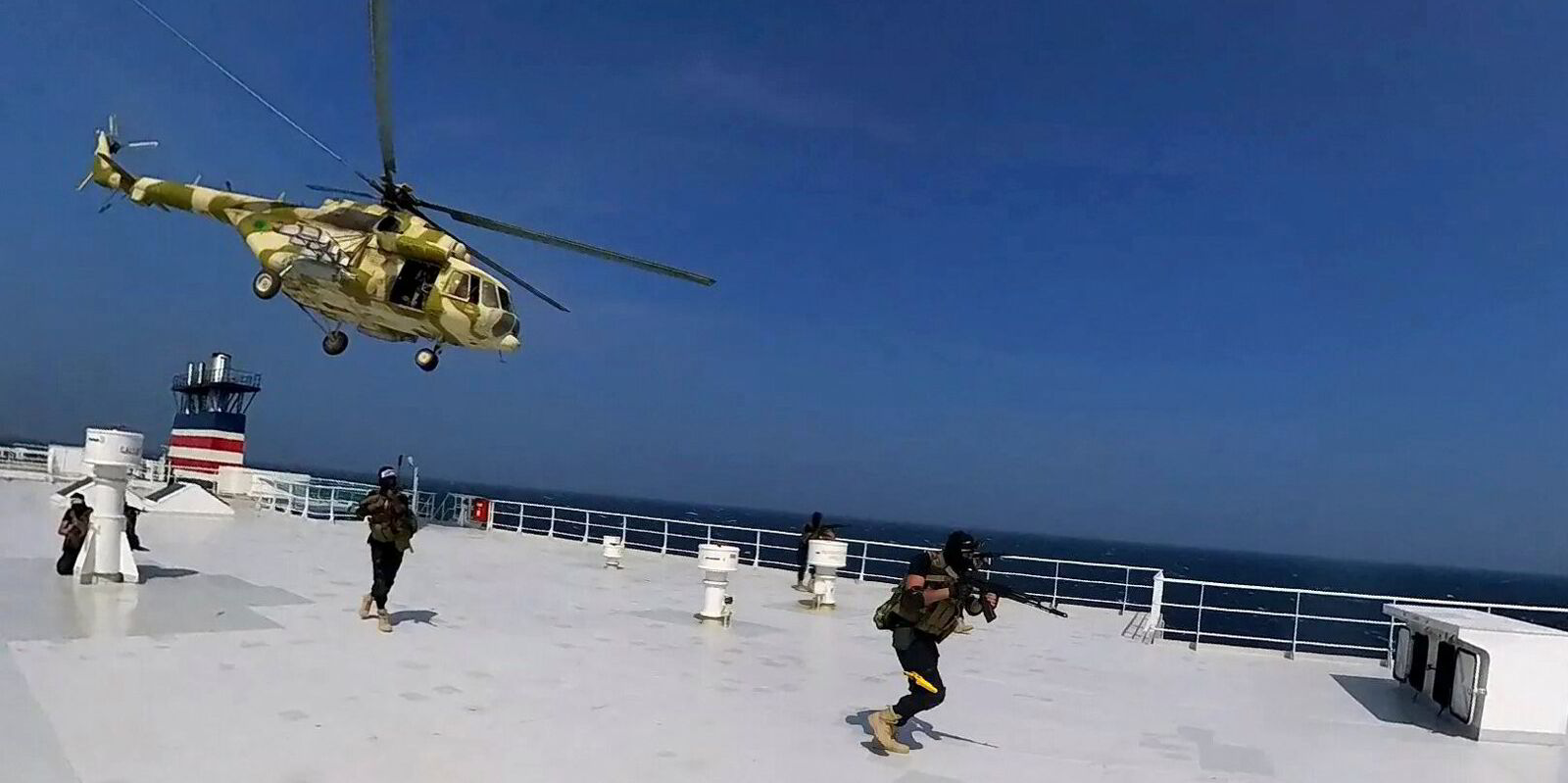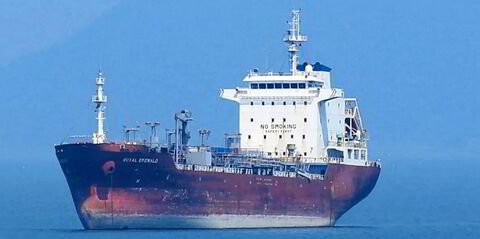An Iran-backed militia seeking to rule a divided country devastated by civil war has managed to redraw the world trade map with a low-cost strategy of attacking shipping’s soft targets.
The campaign by the Houthi leadership has so far sunk two ships, killed four seafarers, forced hundreds of ships to take more treacherous routes around the Cape of Good Hope and wiped billions of dollars from Egypt’s economy due to losses from Suez Canal tolls.
The campaign has highlighted the increasing trend of state-backed groups treating merchant shipping as a legitimate target in geopolitical disputes and the impotence of the industry, regulators and nations to stamp it out.
A year on from the beginning of the Houthi attacks, launched in support of the Palestinian people under fire in Gaza, the group is revelling in its status as a member of the “axis of resistance” and challenger to Israel and its Western allies, despite having an economy ranking 202 of 214 nations.
The threat of being hit by missiles or air and sea drones has caused the number of ships transiting the Suez Canal to fall by two-thirds in the past year, according to PortWatch, an International Monetary Fund-backed project.
On 8 November, seven tankers and 17 cargo ships were passing through the Suez Canal. A year earlier, and less than two weeks before the boarding of the car carrier Galaxy Leader by Houthi commandos from a helicopter, the numbers were 26 tankers and 59 cargo ships.
The ownership and cargoes of the remaining ships now passing through the Red Sea are largely unconnected to Israeli, UK and US interests — and often signal their non-affiliation on AIS to guard against Houthi attack.
Vessels linked to those countries, or part of fleets that have called into Israel, have been threatened in Houthi emails sent to shipping companies by its Humanitarian Operations Coordination Centre (HOCC).
It warns that ships must respond to Houthi authorities or be “banned” from crossing the Red Sea, according to newly published emails.
The companies were warned of the consequences for the safety of ships and crews if ships continue to call at Israel ports and threatened that they “will be directly targeted by the Yemeni Armed Forces in any area they deem appropriate”.
Comply and respond
One email signed by an HOCC director said: “We will consider stopping your ships’ voyages to Israeli ports as the first step in your cooperation, and this is a serious matter that requires your immediate attention.
“If you do not comply and respond, we confirm that you will bear full responsibility.”
One email sent to Eastern Mediterranean Maritime, and later published in a United Nations report, was followed up five days later with an attack on the named ship, the 60,400-dwt Cyclades (built 2017).
It was damaged when it was targeted by three missiles and three drones on 29 April, as it sailed 54 nautical miles (100 km) west of the Yemeni port of Mocha.
Despite the hit, the Cyclades and its crew were safe and headed to their next port of call.
The Virginio Fasan, an Italian navy frigate that was escorting, shot down a drone headed in the direction of the vessel.
Western navies have identified more than 100 attacks, hijacks and suspicious activities around commercial ships since November 2023.
British officials say the Houthis have launched more than 250 attacks against shipping.
Many have missed their targets or caused little damage, but three seafarers were killed in March when the 50,450-dwt bulk carrier True Confidence (built 2011) was hit.

Another seafarer was killed in June when the 82,400-dwt Tutor (built 2022) was the target of a missile and sea drone strike.
The attacks have highlighted evolving Houthi tactics, including the use of remotely controlled sea drones, new longer-range missiles and the posting of videos recorded from boats involved in sabotage operations for propaganda purposes.
They included a video of explosives detonating on the deck of Delta Tankers’ 163,750-dwt Sounion (built 2006), laid by Houthi operatives in August after the crew abandoned ship days earlier following rocket attacks.
Bombs and bad weather
The attacks and rerouting of traffic around the Cape of Good Hope have had a knock-on effect on rates and insurance claims.
Protection and indemnity clubs have reported a spike in claims linked to the harsher weather around the coast of Africa.
“The biggest impact of geopolitics this year is probably the Red Sea diversions … and instead going around the Cape of Good Hope,” NorthStandard joint CEO Paul Jennings said.
“We have experienced a couple of claims which have been contributed to, if not totally caused by, the fact that ships have been exposed to more adverse weather.”
The disruption has driven a 12% increase in demand for boxship tonnage as vessels spend more time on longer voyages.
Hapag-Lloyd and AP Moller-Maersk said last month that they would launch their new liner alliance in February, avoiding the Red Sea when travelling from Asia to Europe and the US.
Container trade growth is expected to continue in 2025 and 2026 on the back of continued rerouting, according to Clarksons. But if the disruption is ended in 2026, demand would fall by 4% for the year.
International Maritime Organization secretary general Arsenio Dominguez said: “Shipping is proving its resilience and ability to adapt, including by rerouting ships.”
He cited UN Trade & Development figures suggesting that maritime trade volume will expand by 2% in 2024, with containerised volumes up by 3.5%.
“However, the ongoing geopolitical tensions continue to endanger innocent human lives, affecting the entire shipping industry and therefore the global economy,” he added.
Read more
- More crude tankers steer clear of Red Sea as Houthis resume attacks, Clarksons says
- Houthi missiles target bulk carrier twice as Red Sea crisis nears first anniversary
- US sanctions Syrian conglomerate’s tanker fleet for bankrolling Iran’s Quds Force and the Houthis
- ‘Multiple explosions’ pepper waters near ship in new Red Sea attack
- Expert casts doubt on size of Houthi bribe claims cited in UN report






